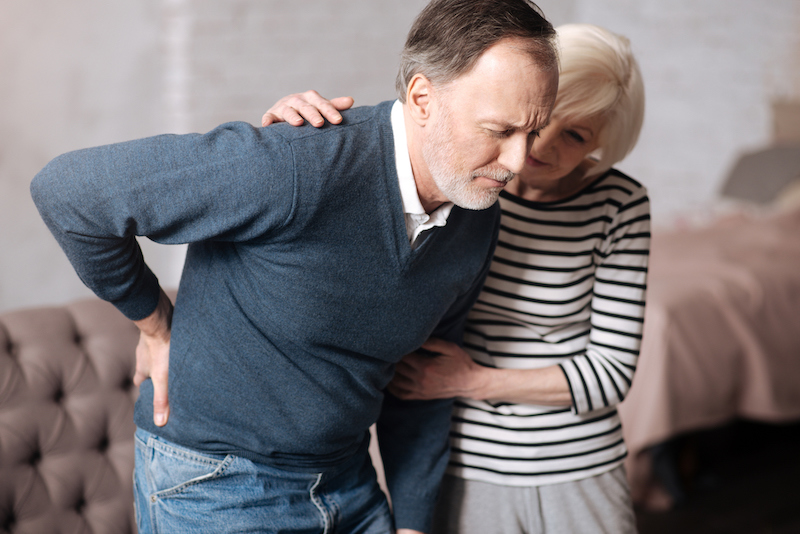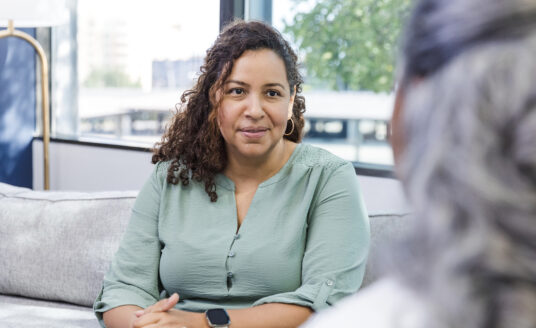There’s no denying it — getting older often means more aches and pains. However, instead of giving up and giving in to the pain, there are daily habits that can help you manage it and increase quality of life.
Some people respond to pain by becoming less active. However, the inactivity can make pain worse and threaten your overall health. Pain can also disturb sleep, may keep seniors from spending time with family and friends, and can lead to depression.
Consider the following, but consult with a physician before putting these suggestions into practice.
Meditate
Worrying about pain tends to intensify it. When practiced regularly, meditation or relaxation techniques that calm the nervous system have been shown to decrease the impact of pain on the brain and body, and increase quality of life. Mindfulness and meditation practices that can help with pain include visualization meditation, breathwork meditation and guided imagery.
Stay in Motion
Doing less physical activity may feel better in the short term, but in the long term it can increase pain and make a senior more susceptible to other health risks. For example, the more a person sits, the more pressure is exerted on the cushioned discs between the bones in the back.
Seniors should ask their physician what physical activities are safe and effective for managing pain.
Be Connected
Pain can be isolating, and seniors shouldn’t have to stop seeing friends and family because of it. Social activities can help ease pain by giving seniors more opportunities to stay connected to others, decrease the time spent struggling with their pain and increase quality of life.
Eat Healthy Foods
A healthy diet encompasses a variety of foods, including fruits, vegetables, whole grains, low-fat dairy products, lean proteins and healthy fats. These foods provide the energy needed to stay active, fight pain and inflammation, boost the immune system, and increase the ability to heal from an injury.
Maintain a Healthy Weight
Extra weight can slow healing and puts additional strain on backs, hips, knees and feet.
Avoid Tobacco and Alcohol
Nicotine may only reduce pain in the short term while worsening it later. It can aggravate abdominal and joint pain, and can increase overall pain sensitivity. It also deprives the body of oxygen-rich blood for bones and tissues, and can lead to degeneration of discs in the spine.
Alcohol and pain medications don’t mix. After all, most if not all pain treatment medications come with warnings to avoid alcohol while taking them, don’t they?
Get Proper Rest
Research has shown that short sleep times, fragmented sleep and poor sleep quality often cause heightened sensitivity to pain. The good news is that quality sleep may lessen chronic pain. Seniors who have trouble sleeping, or may have a sleep disorder, should talk to their physician.
Take Notes on the Pain
Seniors should write down observations about their pain symptoms, noting the following:
- Where does it hurt?
- When did the pain start?
- Does it come and go?
- What does it feel like? Sharp? Dull? Burning?
- What time of day does the pain present itself?
- What makes it feel better?
- What makes it feel worse?
This information can be helpful for the senior to develop pain management strategies, and as information to share with his or her physician.
| Whether in independent living, assisted living, memory care, or skilled nursing, Bethesda offers the right amenities, services, programming, and staff to make every day full of purpose. See for yourself and tour our independent living communities, including Bethesda Barclay House – Clayton, Bethesda Gardens – Kirkwood, Bethesda Orchard – Webster Groves, Bethesda Terrace – South County, Village North Retirement Community – Florissant, and The Oaks at Bethesda Villas – Kirkwood/Webster. |



